I don’t know about you, but my moral compass has been spinning during the 2016 election. I want to seek justice as I vote, but I am not sure it is possible. To help myself (and others who felt this same tension), I asked you guys to share with me your own perspectives as you try to balance your worldview, beliefs about God, and opinions as you seek the good of our nation through the context of justice.
The goal of these points aren’t to fight, but to help us consider the same three points from various vantage points to help us look at all angles.
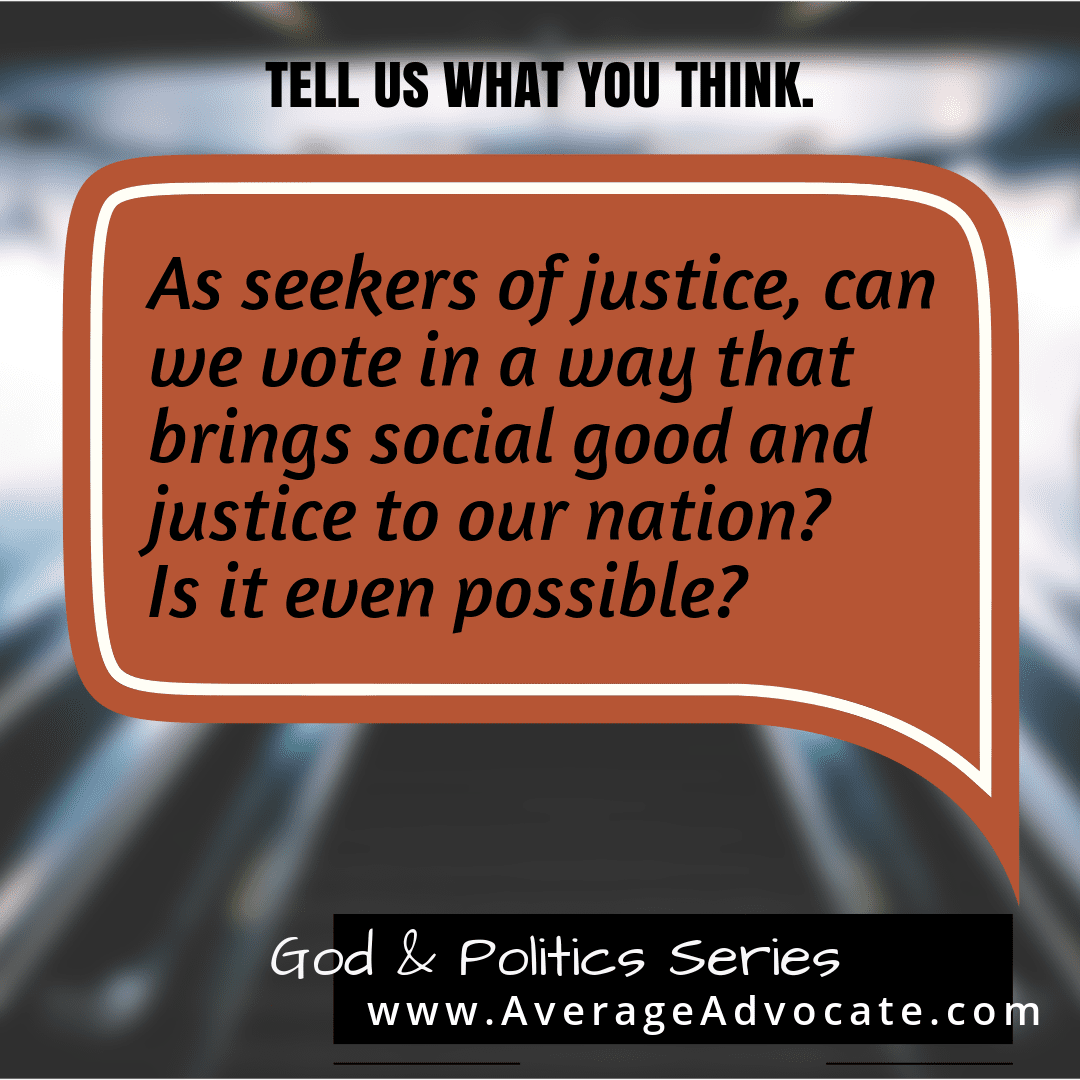 Check out the rest of this series here:
Check out the rest of this series here:
- Justice, God and Politics: 2016 Election
- ANONYMOUS #1 (How Would Jesus Vote)
- ANONYMOUS #2 (Why I Can’t Vote For Pro-Abortion Hillary)
- ANONYMOUS #3 (Don’t Be A Jerk)
- ANONYMOUS #4 (Weighing All The Candidates Through A Lens of Justice)
- ANONYMOUS #5 (Freedom From the Republican Christian Lie)
- ANONYMOUS #6 (What As A Christian I Should Have Been Telling My Kids)
*Disclaimer, the individual posts in this series do not necessarily reflect the stance of Average Advocate*
God & Politics: NOT-SO-ANONYMOUS #7
I wanted to hide my own thoughts in here anonymously. Then I couldn’t get judged by you guys about what I really think when it comes to politics!
As Average Advocate isn’t typically political, or full on religious/spiritual (although there is always cross-over) it is rather scary for me to be honest about what I think. After all, I want you to trust me when it comes to other “world changing stuff” and I am not sure you will if you know what I really think. 🙂
But it isn’t like I hide that I am a follower of Jesus. And although this blog isn’t geared towards Christians, my worldview obviously impacts everything that appears in these two hundred+ posts that are currently here.
And like every one who wrote a God and Politics ANONYMOUS post before me, my view of God totally affects the way I respond politically.
Swinging Back and Forth
My political story is a little bit like many followers of Jesus before me.
I started Republican, then after going to college I swung liberal–especially considering I was studying all the -ologies through the context of global social issues. But as I got older I pendulumed back, finding myself somewhere in the middle.
I found myself frustrated that although Republicans care about ending abortion, they tend to have no compassionate attitude towards the poor, are very militaristic, and embrace both a form of nationalism and immigration policies that are so focused on self-preservation, I was disgusted. And that is just part of it.
But then, I found myself worried about the financial direction of “big government,” tolerance that is only tolerant of some views, and annoyed at a version of democracy that seems intent on workings around constitutional boundaries (until the majority votes us into whatever system they want, which historically doesn’t go well).
It isn’t possible for someone to represent me that hates half of my beliefs and cares about the other half of my beliefs.
Low Death Tolls
For the last decade I found myself looking at all sides of each politicians’ policies and trying to answer this:
Under whose leadership are more people likely to die?
I am not sure that is great to admit out loud, but it is accurate. And I know we might define what type is death is okay differently–from abortion, soldiers in war, civilians in war, death via death penalty, death at the hands of abuse, or those depending on aid to stay alive.
Do I have an acceptable qualifier of death? Should I be more concerned with the death of adults who–by nature of my beliefs–need to choose God? Or should I be more concerned with injustice perpetrated towards infants-in-utero, but who tend to be classified as a version of “innocent” and therefore their salvation isn’t at stake?
See: morality and politics are rather complicated.
Good Character
Besides the “how many people will die,” thing, I started adding good character to the list. From what I understand Biblically, this is paramount. Maybe even if we don’t agree on what good looks like in policies, they are least honest, having evidence of quality long-term relationships and at least will consider what “good” even means. Bigotry nor corruption do not define good character to me.
I want to at least be able to respect my leaders as an individual. Afterall, they represent America to the world. They represent me to the world.
Is It A Privilege I Should Use?
I appreciated my ability to vote, as I enjoy understanding both history and international issues–I know how rare it is to be both a woman and in a democratic country that allows me to have a political voice.
But like one of my friends says, just because you can vote, doesn’t mean you should. It is a privilege, and unless we take it seriously, looking at the ramifications on all sides of what we are doing, we probably shouldn’t use that right. I want to do what I can responsibly with that privilege.
Considering, how can I responsibly vote for a leader whom I find appalling? I won’t go into the details, as I am sure you’ve heard enough of it from everyone else: that we don’t like our options.
These options don’t shock me though, as many friends of mine seem to feel. The 2016 presidential candidates are simply amplifiers of the direction our country has been going for awhile–amplifiers of, dare I say it? Evil. If we are tolerant of various forms of racism, corruption, deceit, lack of compassion, etc . . . while seeking our own interest above others, thinking we are better than them–why wouldn’t these be our options?
I found this quote on-point from an interview with one of the write-in-candidates in my state, Evan McMullin:
“If we continue to choose between the lesser of two evils, we will only get evil options, so to speak, in our candidates.”
We are all annoyed that we usually have two serious options. But we usually throw our support behind one of the ones, regardless of whether we like them or not, simply because they represent a point or two or five to us that we support.
But we aren’t part of changing the system. We whine and complain all while throwing our standards out the window.
In other words, we have given up. Is there already such little hope for our nation that we give up on the political front? Or is it just too hard?
I know things can change on a mirco-level, and even large scale on a bi-partisan level. After all, I was part of a movement that drastically changed laws to fight human trafficking and it has been an amazing journey.
But I wonder if I, and others, have given up on a macro-level.
Ask All The Questions
So what’s a girl to do?
Nothing?
The same old, same old?
Think outside of the box?
True, I seriously considered doing nothing this year. Even until two minutes before submitting my ballot today, I was still considering not voting (at least, not for president).
As for the same old, same old, the truth is that I am not always good at that, being a world changer and all (*wink*). And so I ask myself questions like these:
- Why do I want to give up on the United States and is that okay?
- Why hasn’t this been working and what are we missing?
- What does history say?
- What do my beliefs really say about politics?
And then, those questions lead to these ones:
- What is the ideal purpose of government anyway?
- What does the Bible say about selecting leadership?
- Whose job is it to help the poor–the government or the people?
- Should people be legislated into morality?
- How can we be sure we protect the weak?
- Should people be forced to give?
- Will people give if they aren’t forced to give?
- What are better systems for helping the poor?
- How do we listen to others better?
- Is it worth it to pay off debt at the cost of lives?
- Is the cost of lives worth to to change the systems?
- Should we even care about citizenship and immigration?
- How can we best take care of what God gave us?
- When should we focus on our rights?
- What are better systems to bring people our of cycles of poverty?
- What is the role of the Church?
- Why is it that two different political parties want to legislate various forms of morality that the other side isn’t interested in?
- Do representative governments even work?
And the list goes on and on, as I address each social issue. I know this is important, because if we want to be world changers we can’t just stay at the microlevel, only loving those in our immediate vicinity. We can’t ignore the role of the larger picture (consider this post about what it means to seek justice).
Although I ask the questions, I feel like I rarely find the answers. I research. I find studies. I search through the Bible. I look up different obscure candidates. I ask you guys, like I did in this God and Politics series, to tell me your opinions.
Even on this year’s ballot I realized I didn’t have a clear opinion on some very major issues. I have taken classes studying immigration policy, welfare policy, refugee policy . . . and I still don’t know. I might never know. But I usually at least discover a tid-bit more of truth that I can apply.
But more than any of that other stuff I do, I place my hope in God, not politics.
Where is Your Hope?
This election season, though, something did change in me. Mainly, I am engaging people publically on politics.
I have never really done this before.
Three Demographics of Hope
I think recognizing that people tend to fall into one of three categories actually taught me how to love better through engagement in political discussion. Here is my revelation:
1.) Coping. This group of people doesn’t know how to deal with what is happening in our country and world. Either they don’t have enough information, they have already given up, or are simply indifferent. Their hope is based on ignoring politics and global issues while enjoying–or at least focusing on–what feels more controllable to them, their lives. They do this by not engaging media and coping with other escapes, like TV shows, concerts, drinking, work, their children, etc . . .
2.) Politics. Then there are those who actually confront the issues and allow themselves to care and push for change politically. Example: They see the world is going to waste environmentally. Therefore, they seek new energy sources and prepare to colonize Mars. They push for the candidates and live to protect their lives and ways via small governments. Or, alternatively, they hand big governments this authority, in hopes that the government can provide (like god) for others.
3.) God. The third group of people might or might not push for change, but usually they care. The difference in this demographic vs. demographic #2, is that they don’t believe that politics will answer the problems (although maybe politics can help). Instead, their hope is in their religious beliefs.
On an extreme side of the spectrum #3, is when politics and God are so closely combined, that the nation becomes a theocracy (that is really more of dictatorship). A great example of these are the Islamic states.
Or, on the other extreme of this third demographic is that they don’t even care about politics, because “Jesus is coming back” and appear more like demographic #1. They might be really good at loving people on a micro-level but it never goes into changing the system.
As for me, I guess I am somewhere in the middle of the third demographic. It is true, my hope isn’t in politics. But, I still believe politics has a role, a purpose, and can be used for good. I am a firm believer that my role is to bring heaven to earth, not to watch people be abused, beaten, or burned around me when I could do something about it, and say “oh, well, someday you will have justice when Jesus returns.” I mean, that is the whole reason this blog was created, was to help people who want things to change, (usually us in demographic #2 and #3) find ways to do that.
And we might not agree about whether our hope is in God or in government. But in the meantime, we work together for the good of others as much as we can.
Before political discussions we annoyingly frustrating and tension-inducing. But as I clung to faith, hope and love, this changed.
This was largely because I am not a typically nationalistic American, believing people are more important than my homeland. That is dangerous territory to be in among those that embrace “God and Country.”
Or, maybe these conversations were painful because I find my hope not in political messages, but that my life, and that others, can be transformed through a relationship with Jesus. (It might seem Christianity appeals to me because of Pascal’s Wager, but I truly believe in this grand story of purpose, brokenness, rescue, and life.)
Yet when I approach conversations understanding these three demographics, I feel like I can actually engage. If they have no hope, and are coping, giving up on the country and world at large, I get that. I can relate. I might try to encourage them to care again, but I can do that without anger.
For those whose faith and hope is in politics, then I get that too. If I felt that way, I would also be horrified at who people were voting for! No wonder they are so mad that people aren’t paying attention to climate change, human rights, the debt, or whatever concerns them. If the answer is government, and we are so divided–it really is appalling.
I can finally be compassionate to and listen to the concerns–even if I don’t agree–of demographic #2.
And you know what? I have loved this political season simply because I have finally been able to hear people, and be compassionate towards them, while being open to learning from them. My political evolution will continue as I seek justice, but I have no doubt that with my hope firmly rooted, I will continue to grow in my love for others.
My Hope Is Built On Nothing Less, venerable hymn by Edwards Mote, 1834
My hope is built on nothing less
than Jesus’ blood and righteousness;
I dare not trust the sweetest frame,
but wholly lean on Jesus’ name.
Refrain:
On Christ, the solid rock, I stand;
all other ground is sinking sand,
all other ground is sinking sand.
When darkness veils his lovely face,
I rest on his unchanging grace;
in every high and stormy gale,
my anchor holds within the veil. [Refrain]
His oath, his covenant, his blood
support me in the whelming flood;
when all around my soul gives way,
he then is all my hope and stay. [Refrain]
When he shall come with trumpet sound,
O may I then in him be found,
dressed in his righteousness alone,
faultless to stand before the throne. [Refrain]

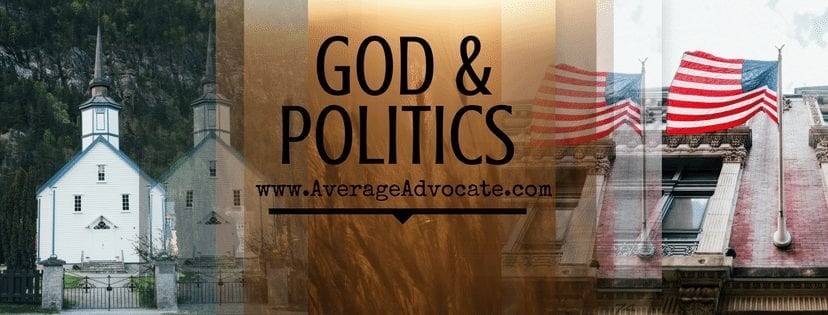
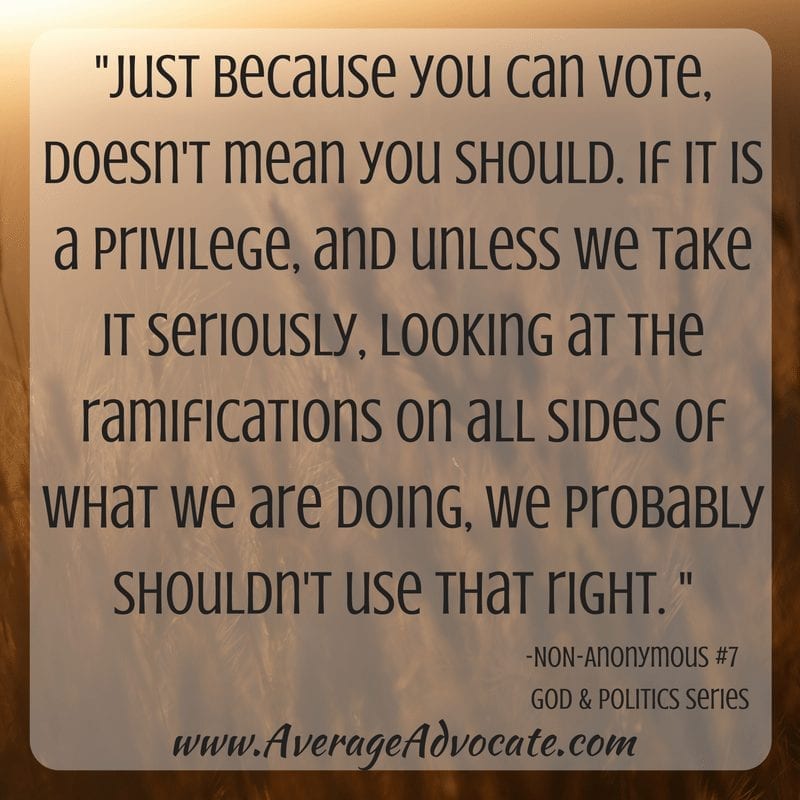
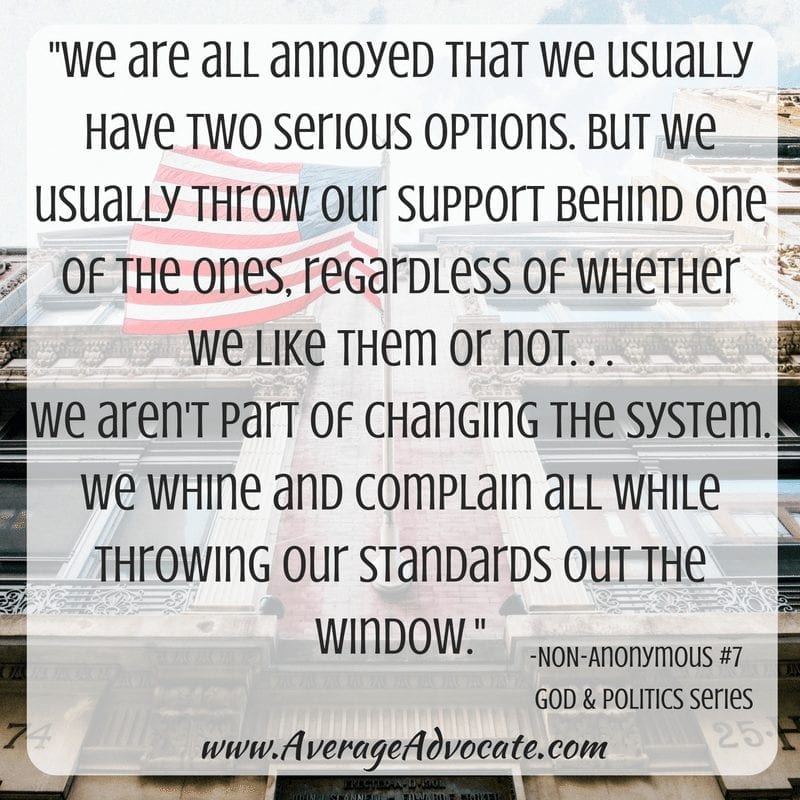

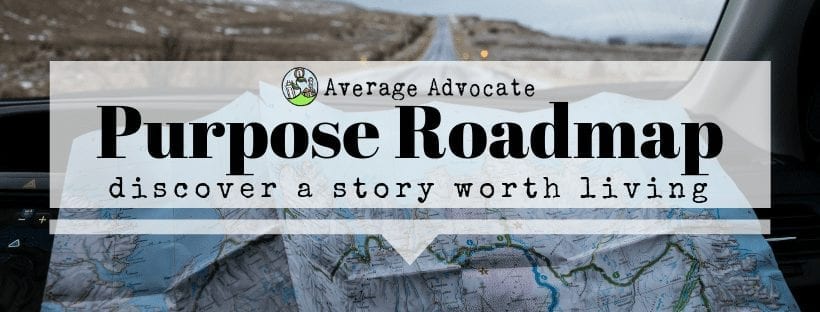




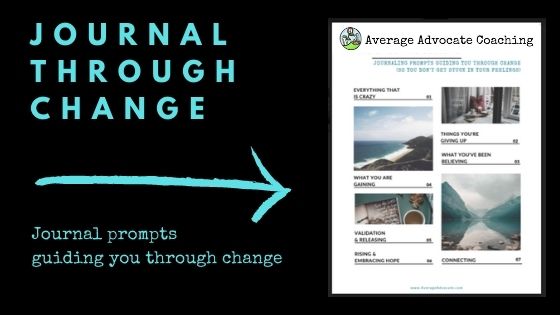
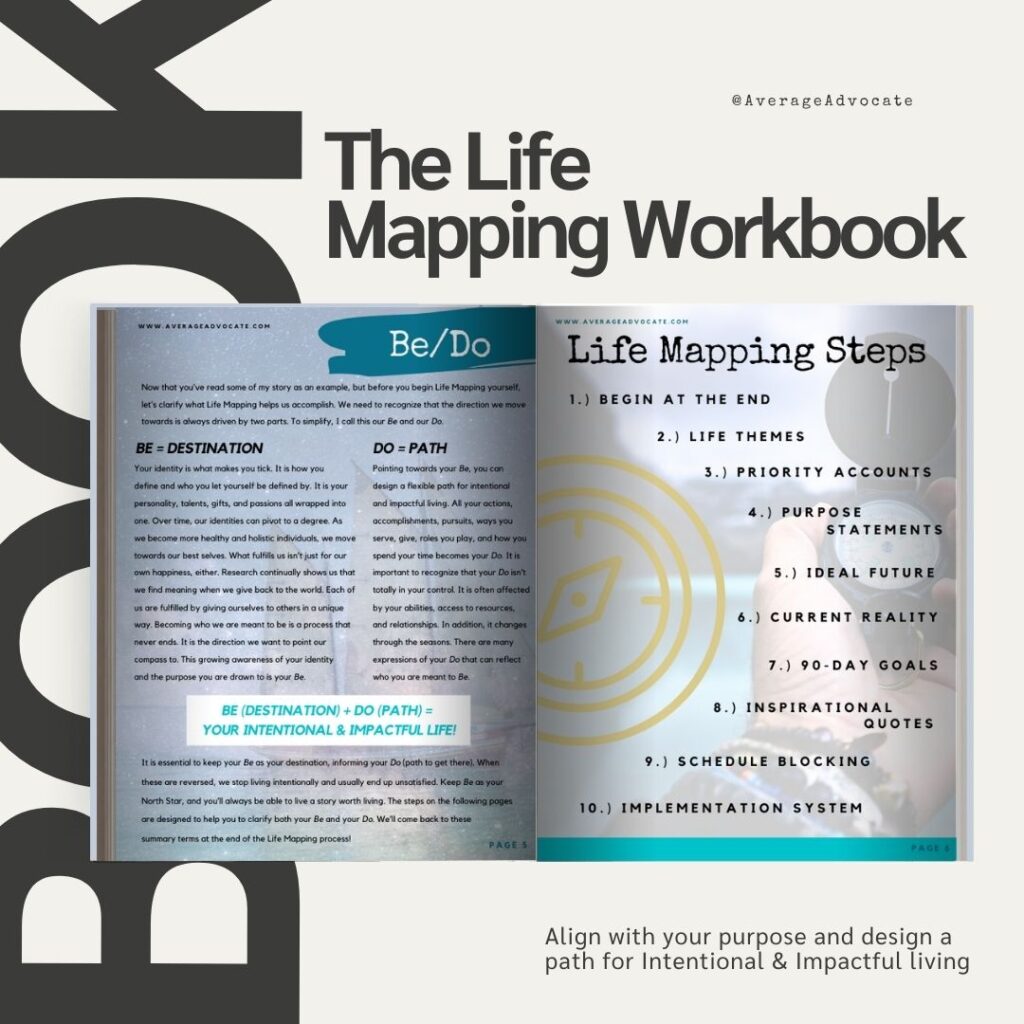


Trackbacks/Pingbacks